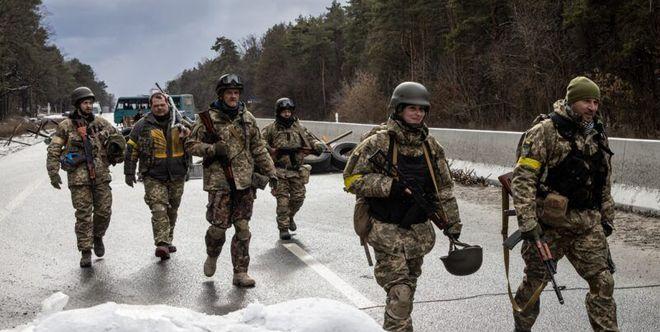Russia has invaded Ukraine for nearly two weeks, the current war situation is glued, the French media reported that Ukraine with a small fight, successfully prevented the Russian army from advancing rapidly, smashed the Russian army launched the "blitzkrieg".

Ukraine is weak in terms of troops and armaments, but the seemingly large Russian army has so far failed to capture the Ukrainian capital, Kiev. According to the report, Ukraine's successful defense against the lightning invasion of the Russian army has five main aspects.
Ukraine has strengthened its armed forces over the past 8 years
Renden, an adjunct associate professor at Georgetown University in the United States, said: "Ukraine has been planning, training and preparing for the past 8 years to resist the Russian occupation. ”
After Russia annexed Ukraine's Crimean Peninsula in 2014, Ukraine, with Western support, began to strengthen its armed forces.
In 2016, NATO launched a special forces training program with Ukraine, and now 2,000 Ukrainian special forces are assisting civilian volunteers in combat.
Second, the landlord advantage
After the Russian invasion, the Ukrainian government called on the public to remove the road signs, making it impossible for the Russian army to identify the direction and hindering the rapid advance of the Russian army.
On the other hand, due to the influence of the warm winter, the roads in Ukraine are muddy, and the convoys of Russian military vehicles are difficult to travel and the speed of advance is slow. In addition, the Russian army encountered unexpected and stubborn resistance from ukrainian soldiers and civilians, and suffered heavy losses.
Meredith, a professor at the U.S. School of International Security Affairs, said that in such irregular combat situations, the weaker side can maximize its advantages over a strong opponent, including "terrain advantages, local knowledge and social connections."
According to the report, if the Russian army enters Kiev and other cities, the two sides will start street battles, and the Russian army will face greater challenges.
"Russians get into trouble on every street corner, every building." An anonymous source in french military circles said.
Third, the Ukrainian military and civilians hate each other
After the Russian army fired the first shot of the war, the stubborn resistance of the Ukrainian military and civilians impressed the international community. Ukrainian President Zelenskiy did not flee in the face of assassination, but stayed in Kiev to fight the enemy with the people.
Under Zelenskiy's leadership, Ukrainians have shown maximum resilience in the face of adversity. Countless Ukrainian civilians defended their homeland and went to war.
The Ukrainian government provided volunteers with guns and ammunition, telling them how to make petrol bombs to stop the Russian advance. There were even farmers who towed away Russian armored vehicles with tractors.
French retired Colonel Goya said ukraine "had no choice but to further enhance the war of attrition by rapidly training volunteers and using light weapons".
Fourth, the Russian military's strategic mistakes
Military analysts were quoted as saying that the Russians made strategic mistakes in the early days of the invasion, sending too few ground troops and not acting in coordination with air forces.
Kaufman, director of the Russian research program at the U.S. Naval Analysis Center, said: "They initially thought they would be able to get troops into the capital Kiev very quickly... But they were frustrated early on. ”
"This assumption is absurd... How can you take Kiev in 3 days? Kaufmann said, "The Russian army has now made adjustments and tried to deal with it in a joint arms operation." ”
Fifth, the morale of the Russian army is low
After the Russian invasion of Ukraine, heavy casualties and low morale were low. According to the Ukrainian military, about 11,000 Russian soldiers were killed. Sources said there was at least one Russian major general on the death list, who had been shot dead during a front-line inspection.
Videos circulating online showed some Russian soldiers surrender en masse because they were reluctant to attack Ukrainian civilians who also spoke Russian. Some of the soldiers, after being captured, said they did not know they had come to Ukraine to fight and thought they were here for exercises.
Papinsky, a non-resident senior fellow at the Brookings Institution in Washington, said, "If russians are nervous, insomnia, and prone to overreacting, Ukrainian resistance will be more effective." ”